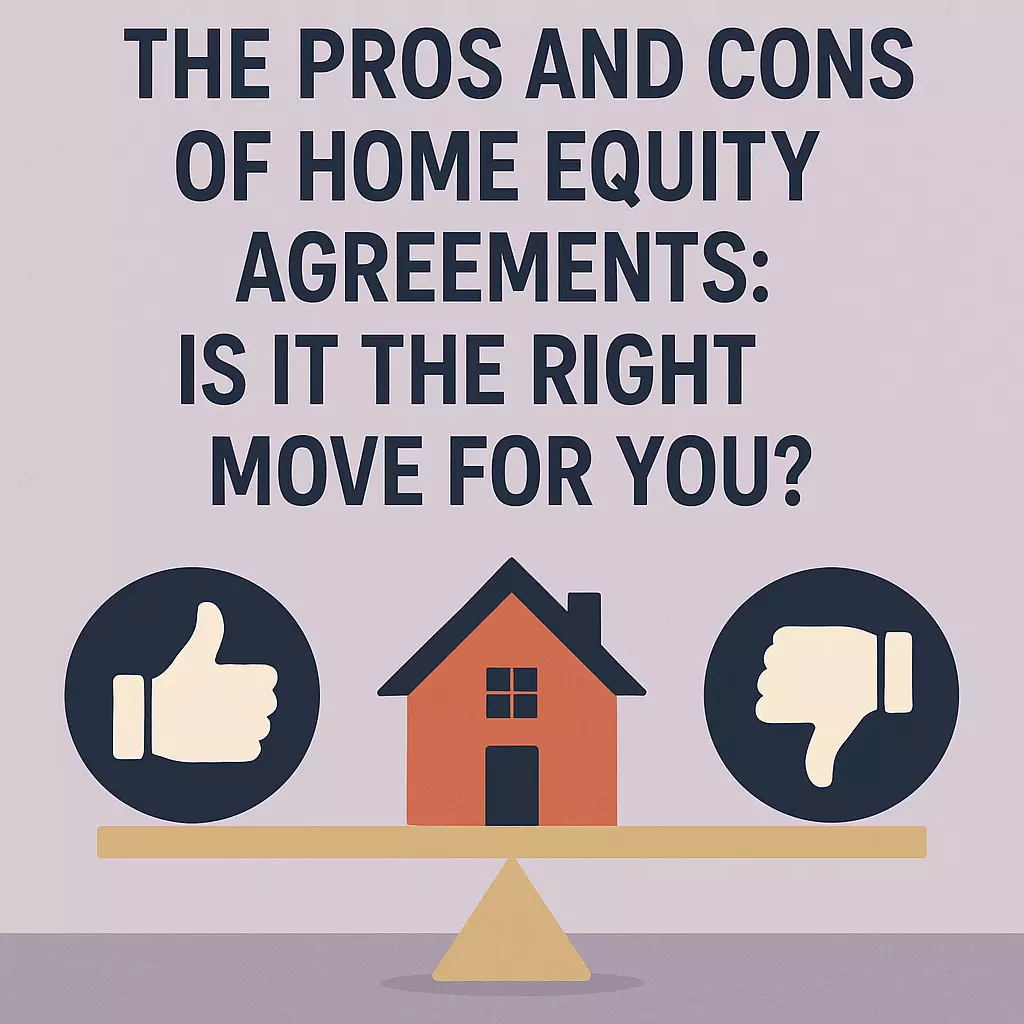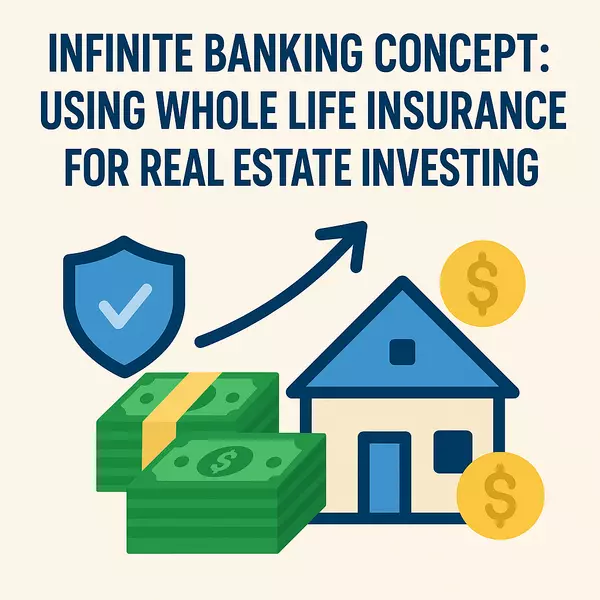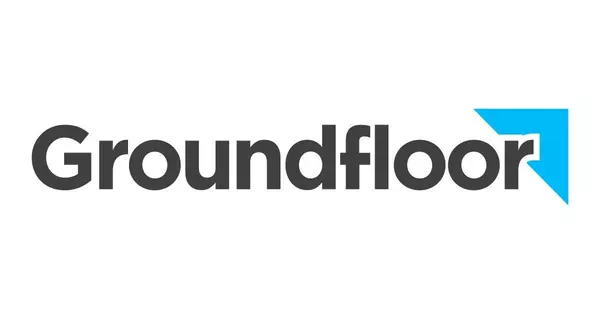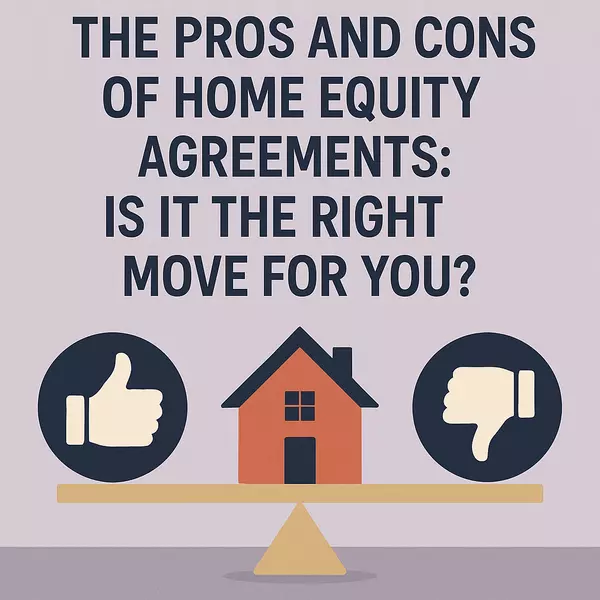The Pros and Cons of Home Equity Agreements: Is It the Right Move for You?

🏡 The Pros and Cons of Home Equity Agreements: Is It the Right Move for You?
Homeownership often comes with a valuable asset hidden in plain sight—home equity. But what if you could access that equity without taking on more debt or monthly payments? Enter Home Equity Agreements (HEAs).
Also known as shared equity agreements, these financial tools give homeowners upfront cash in exchange for a share of the home's future value. They're growing in popularity, especially among homeowners who are house-rich but cash-tight. But like any financial product, HEAs come with both benefits and drawbacks.
Let’s break them down.
✅ Pros of Home Equity Agreements
1. No Monthly Payments
Unlike a HELOC or home equity loan, HEAs don’t require monthly payments. Instead, the agreement is settled when the home is sold, refinanced, or bought out—usually within 10 to 30 years.
📌 Great for retirees, entrepreneurs, or those with variable income.
2. Access to Cash Without Adding Debt
HEAs are not loans. There’s no interest and they typically don’t appear as debt on your credit report.
🛠️ Useful for renovations, debt consolidation, education costs, or business capital.
3. Flexible Qualification
Most HEA companies look at home equity and property value more than credit score or income. Some allow scores as low as 500.
🏚️ Ideal for homeowners who don’t qualify for traditional financing.
4. Risk-Sharing
If your home’s value decreases, some companies will share in that loss, reducing what you owe.
📉 This can help mitigate risk in declining markets.
⚠️ Cons of Home Equity Agreements
1. Giving Up Future Appreciation
If your home gains a lot of value, you’ll owe a percentage of that upside—sometimes more than you would with interest on a traditional loan.
💰 That “free money” now might cost you a big chunk later.
2. Limited Timeframes
Most HEAs must be settled within 10–30 years. If you’re not planning to sell or refinance in that window, it may force your hand.
⏳ Could create pressure to move or restructure sooner than planned.
3. Complex Terms and Fees
Some agreements come with origination fees, home appraisals, and fine print around early exits or defaults.
🔍 You’ll want a real estate attorney or financial advisor to review the terms.
4. Not Available Everywhere
HEA programs aren’t yet offered in every state, and availability can vary widely by company.
📍 Make sure to check local availability and regulations.
🧠 Is a Home Equity Agreement Right for You?
It could be—if:
-
You want cash but can’t qualify for a loan.
-
You’re comfortable sharing your home’s future appreciation.
-
You’re planning to sell or refinance in the next 10–30 years.
It might not be—if:
-
You expect your property to appreciate significantly.
-
You don’t want anyone else sharing in your equity.
-
You have access to lower-cost borrowing options.
🔝 Top Home Equity Agreement Companies (2025)
1. Unison
-
Overview: One of the pioneers in home equity sharing.
-
Highlights: Offers 3–30 year terms; no monthly payments.
-
Available In: Over 30 states.
2. Unlock Technologies
-
Overview: Allows homeowners to access cash from their equity with flexible qualification.
-
Highlights: 10-year term; early exit options.
-
Available In: 20+ states and growing.
3. Point
-
Overview: Offers lump sum cash in exchange for a share of future home value appreciation.
-
Highlights: 30-year term; early buyout options; no monthly payments.
-
Available In: Most major U.S. markets.
4. Hometap
-
Overview: Invests in your home’s future value and offers up to 30% of your home’s current value.
-
Highlights: 10-year term; soft credit checks; no monthly payments.
-
Available In: 20+ states.
5. EquiFi
-
Overview: Offers a flexible shared equity model with homeowner-centered terms.
-
Highlights: Custom agreement structures; still expanding reach.
-
Available In: Select markets.
6. Figure Home Equity Investment
-
Overview: Fintech company offering HEAs through blockchain technology.
-
Highlights: Fast funding; blockchain-based transparency.
-
Available In: Several states.
7. HomePace
-
Overview: Offers equity access without interest or monthly payments.
-
Highlights: Lower FICO score requirements (starting at 500); 15-year term.
-
Available In: Select markets.
8. QuantmRE
-
Overview: Focuses on residential equity sharing via tokenized real estate on blockchain.
-
Highlights: Early stage but innovative; aims for fractional investing.
💡 Final Thoughts
Home Equity Agreements offer a unique, flexible way to unlock the value in your home—without the burden of monthly payments. But they’re not for everyone.
Before signing anything, compare options from companies like Unison, Point, Hometap, and Unlock—and always weigh your current needs against long-term costs.
Want help reviewing an offer or exploring traditional alternatives like HELOCs or refinance options? Let’s chat.
Would you like a version of this formatted for email, social media, or a visual infographic?
Categories
- All Blogs (32)
- banking (7)
- building (1)
- buying (11)
- credit (4)
- development (1)
- finances (16)
- flipping (2)
- homebuyer (8)
- househacking (4)
- infinitebanking (1)
- insurance (1)
- investing (21)
- land (1)
- luxury (1)
- real estate (24)
- reit (1)
- renting (2)
- retirement (7)
- savings (3)
- secondhome (1)
- selfdirectedIRA (2)
- sellers (2)
- staging (1)
- taxes (1)
Recent Posts










GET MORE INFORMATION

